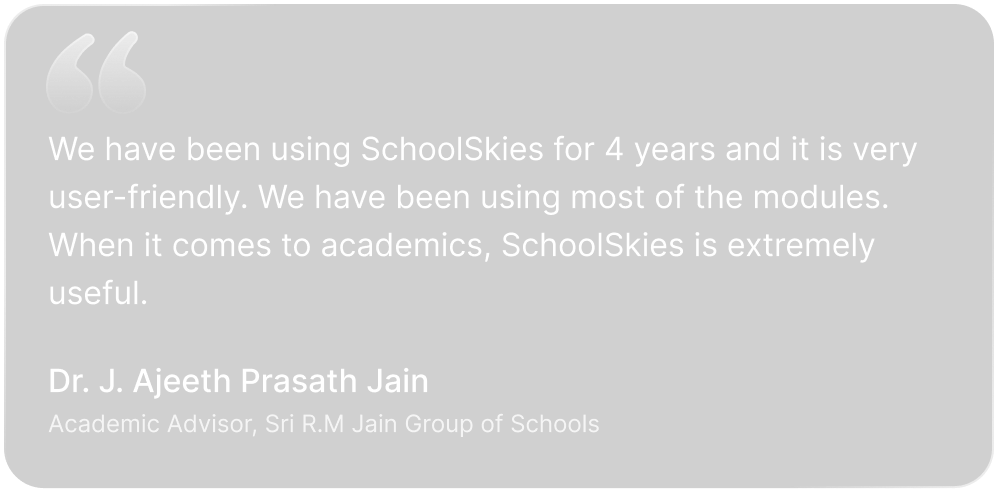Start Your Free
Trial Now


In the pursuit of sustainability, educational institutions are increasingly turning to technological solutions that not only enhance efficiency but also contribute to environmental conservation. School Enterprise Resource Planning (ERP) systems, designed to streamline administrative processes, are emerging as eco-friendly tools with a range of environmental benefits. In this blog post, we delve into how School ERP systems can play a role in fostering a greener, more sustainable future for education.
One of the most evident environmental benefits of School ERP systems is the significant reduction in paper usage. Traditional administrative processes often involve extensive paperwork, from attendance registers to report cards. By digitizing these processes, ERP systems contribute to a paperless administration, saving trees and reducing the environmental impact associated with paper production and disposal.
School ERP systems are typically hosted on centralized servers or cloud platforms, leading to more energy-efficient operations compared to maintaining multiple physical servers. The energy savings achieved through centralized hosting contribute to a lower carbon footprint, making ERP systems a greener alternative to traditional administrative infrastructures.
ERP systems enable schools to optimize resource utilization by providing insights into the usage patterns of various assets, such as classrooms, equipment, and facilities. This data-driven approach helps in efficient resource allocation, preventing unnecessary consumption and reducing waste.
ERP systems assist in sustainable financial management by automating processes like budgeting, procurement, and expense tracking. The streamlined financial workflows reduce the need for excessive paperwork, minimize resource consumption, and contribute to the overall sustainability of the school's financial operations.
Adopting eco-friendly practices often aligns with long-term cost savings for schools. The reduced reliance on paper, optimized resource usage, and energy-efficient operations not only contribute to environmental conservation but also lead to financial savings, allowing schools to allocate resources to other essential areas.
The implementation of School ERP systems presents an opportunity for educational institutions to educate students, teachers, and parents about the importance of sustainable practices. By showcasing how technology can contribute to environmental conservation, schools can instill a sense of environmental responsibility among their stakeholders.
School ERP systems are not just tools for administrative efficiency they are catalysts for positive environmental change within educational institutions. By embracing these systems, schools contribute to the global effort to create a sustainable future. In the journey toward greener education, School ERP systems stand as a testament to the transformative power of technology in shaping a more sustainable world.